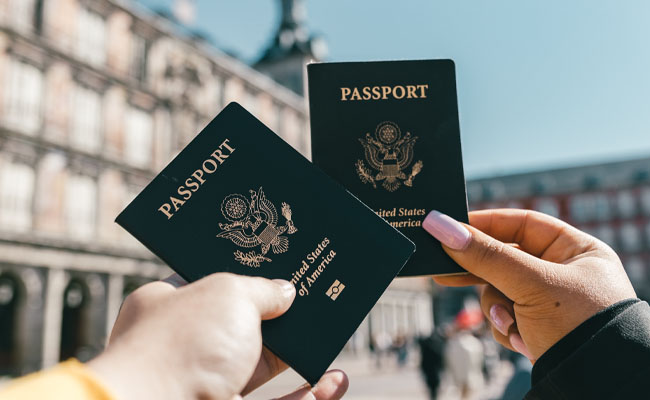The Best Jobs for Obtaining an Employment-Based Green Card

The employment-based immigration procedure is an excellent way for many persons born outside of the United States to get a green card (lawful permanent residence).
Not only might it take a lot less time than family-based immigration, but corporations that sponsor foreign nationals often have access to financial, legal, and other resources that can speed up the process. The US government, on the other hand, is fully aware of the high demand for permanent residence and has made it difficult to obtain.
With the U.S. labor market and the country’s requirements in mind, Congress created numerous visa “priority categories” that prioritize some vocations and careers above others when deciding who would be allowed to apply for permanent residency. Only a few vocations and professions have a higher chance of laying the groundwork for a green card application.
Let’s take a look at how the preference categories operate and which employees are best for obtaining a green card.
Preference Categories Based on Employment
There are five main types of employment categories, as well as certain subcategories inside each of them. The qualifying requirements for each category mainly classify jobs based on the degree of education required to perform the job tasks.
A bachelor’s degree in computer science would be required for entry-level Computer Programmer employment, but a master’s degree in physics would be required for a Nuclear Physicist post.
Are you Ready to get your Green Card?
Apply Now
Correct!
Wrong!
Correct!
Wrong!
Correct!
Wrong!
Correct!
Wrong!
Correct!
Wrong!
Correct!
Wrong!
Correct!
Wrong!
Correct!
Wrong!
Correct!
Wrong!
Correct!
Wrong!
Correct!
Wrong!
Correct!
Wrong!
Correct!
Wrong!
Share the quiz to show your results !
Subscribe to see your results
I'm %%personality%%
But I'm also %%personality%%
Loading...
Who Is Eligible for the EB-1 First Preference Program?
The employment-based First Preference category is for those with “extraordinary skill,” great academics or researchers, or multinational CEOs or managers (EB-1).
EB-1 category, as you might expect, is for the “cream of the crop.” Nobel Laureates, well-known international scientists like Albert Einstein and Stephen Hawking, and international artists like Yo-Yo Ma and Vicente Fernández are typical members of this group. First Preference also includes “multinational CEOs or managers.” These are top-level business leaders, not ground-level supervisors, with extensive ability to make decisions that affect whole organizations.
Mark Zuckerberg and Jeff Bezos are all great examples of the type of person that fits within this group. Congratulations if your job and work fall into this exclusive category: You may be eligible for First Preference, which means you’ll receive an immigrant visa number and an easy path to a green card almost immediately. (You probably also have a lawyer who can explain all you’ll need to know and do!)
Who Is Eligible for the EB-2 Second Preference Program?
Not everyone is born with “extraordinary ability” or the opportunity to lead a huge global business.
If, on the other hand, your professional path necessitates an advanced degree, such as a master’s degree or higher, or you possess outstanding aptitude in the sciences, arts, or business. It’s possible that you’ll qualify for the Second Preference Category (EB-2). Second Preference visa numbers, while not as advantageous as First Preference visa numbers, are generally available quickly, with little or no waiting time. Even better, a wider number of jobs meet the Second Preference criterion. If a firm is happy to accept you a green card and your future employment requires at least a Master’s degree or the equivalent, you may be eligible for Second Preference.
At this level, civil engineers, accountants, computer engineers, investment or financial managers, management or business analysts, and chemical engineers or chemists are all typical positions. The O*NET Online website of the United States Department of Labor is a good place to check for up-and-coming professional categories that will likely meet the 2nd Preference requirements.
This site compiles data on job markets and professions in the United States, including average degree and experience requirements, popularity and demand, and expected salaries. This website can also help you figure out which jobs and fields are in high demand in the U.S. The needs of the employment market in the United States are constantly monitored by immigration officials. Alternatively, if you have exceptional skills in a certain scientific, artistic, or business field, you may be qualified for Second Preference.
This, like the criteria for “extraordinary talent” in First Preference, can be difficult to meet. You must be able to demonstrate significant achievements and contributions to your industry or field, including industry, government, or peer recognition, awards, and salaries recognizing exceptional ability, publications and peer-reviewed articles you’ve written, as well as letters from prior employers attesting to ten years or more of experience in your area. Contact an immigration lawyer if you need additional information about your 2nd Preference case.
Who Is Eligible for EB-3 Third Preference Status?
Jobs in the Third Preference Category (EB-3) necessitate a Bachelor’s degree or its equivalent to meet the job criteria. In terms of legislative criteria, the 3rd Preference is a considerably more accessible way of obtaining permanent residency (PR) through work.
However, this means that a large number of individuals will apply for permanent residency under the EB-3 category, resulting in considerably longer wait periods for available visa numbers. You may have to wait 4 years or longer after an employer files a 3rd Preference petition before you can begin your part of the green card procedure.
The longer wait times associated with the 3rd Preference are not impossible to overcome. You might be eligible to work as a nonimmigrant in the United States until a visa number becomes available. If you can find a firm willing to sponsor you as a Third Preference worker while also sponsoring you for a nonimmigrant work-authorized visa like the H-1B or L-1, you’ll be in luck. Be aware that this arrangement demands a great deal of planning and a good working relationship between you and your boss. Consult an immigration lawyer if you believe you’ll be pursuing this route.
What about the EB-4 and EB-5 classifications?
The next two categories of work preferences are less important to this examination of the “best sorts of occupations” for obtaining a green card.
The EB-4 category is reserved for “special immigrants,” such as religious workers. EB-5, on the other hand, is for investors who can inject substantial sums of money into the US economy.





